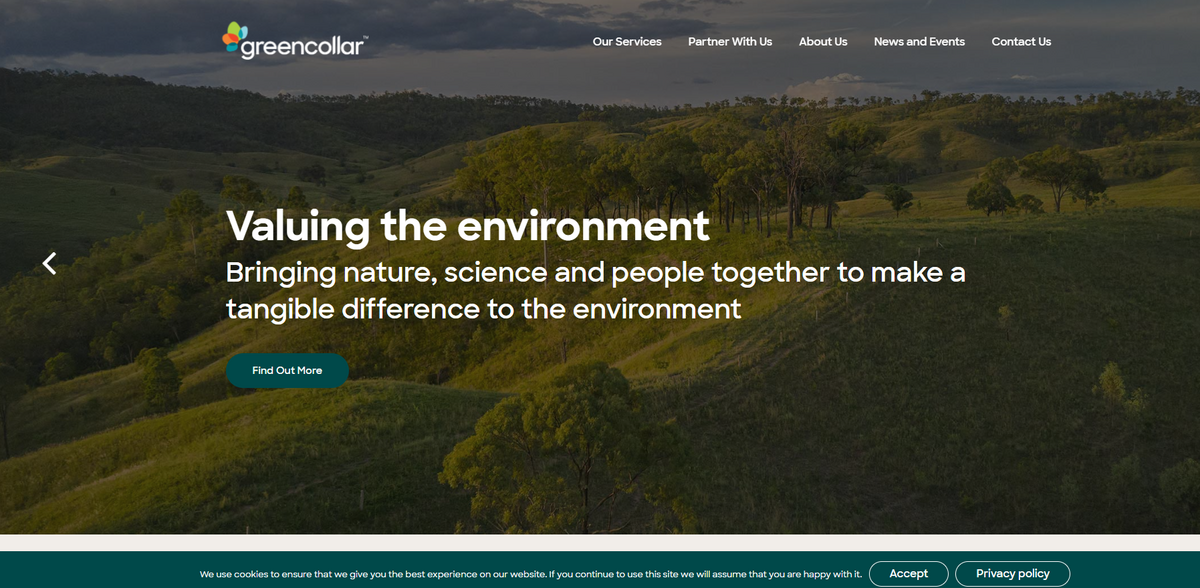What is the GreenCollar Project?
GreenCollar’s initiatives form a comprehensive approach to environmental management by integrating carbon farming, water quality enhancements, biodiversity projects, and plastic sustainability into a single, dynamic strategy. The projects work with land managers to improve environmental outcomes and regenerate the land, while also designing initiatives such as the Reef Credits Scheme—an innovative method that rewards land managers for improving water quality in support of the Great Barrier Reef. Carbon farming projects enhance productive enterprise and tackle challenges including soil rehabilitation, invasive species management, and water-quality improvements. Essentially, this project values nature by bringing together nature, science, and people to make a tangible difference to the environment… all with a focus on creating an impact that benefits farmers, the planet, and even regional communities.
Main Benefits and Key Figures
The benefits of the project stretch across environmental, social, and economic spheres, backed by impressive figures:
- 220 Australian projects bringing diverse environmental improvements
- 117 Million ACCUs contracted, placing the initiative near the forefront of the voluntary market
- 57 Thousand Reef Credits delivered, highlighting the effort towards water quality improvement
This impressive scale of operation ensures that environmental actions are robustly measured, independently verified, and aligned with tangible improvements in key areas such as biodiversity, soil quality, and water retention… all while supporting long-term business sustainability and community revitalization.
Carbon Farming & Nature-Positive Initiatives
At its core, the initiative relies on carbon farming to drive change in land use—a practice that boosts the productivity of enterprises while nurturing the surrounding environment. Projects are designed to reward positive biodiversity outcomes resulting from good land stewardship. This helps in stacking additional value within environmental solutions and ensuring that the environment is on the balance sheet. Land managers benefit by receiving payments for measurable outcomes such as increased ground cover, improved soil quality, and reduced erosion, making the projects not only environmentally responsible but also economically viable. It’s a blend of science and natural resource management that delivers clear environmental results.
Innovating for Water Quality and Reef Protection
A highlight of the project is the GreenCollar Reef initiative—a global first in recognizing and rewarding improved water quality resulting from on-farm actions. This scheme, known as the Reef Credits Scheme, directly addresses one of the critical threats to the iconic Great Barrier Reef, demonstrating a clear commitment to blending environmental markets with tangible conservation outcomes. The scheme is noted for its high integrity, using science-backed methodologies to measure, report, and verify outcomes. Such pioneering work reinforces the idea that environmental sustainability and the protection of marine ecosystems can go hand-in-hand even in a market-driven approach.
Empowering Land Managers and Traditional Owners
The project is distinctly structured to empower a variety of stakeholders, including farmers, graziers, and traditional owners. By creating partnerships that respect the deep cultural connections to country, the initiative ensures that Aboriginal and Torres Strait Islander peoples are honoured as traditional custodians. Land managers receive additional, diversified income streams through environmental projects that enhance infrastructure, boost productivity, and promote long-term drought resilience. There is a natural synergy in supporting both the financial sustainability of farming communities and the regenerative health of the environment… a true win-win scenario.
Research and Market Development in Environmental Services
The initiative does not stop at practical implementation—it also backs world-class research aimed at advancing science-based methods for understanding, managing, and conserving biodiversity. Through consistent collaboration with experts, the project works to refine methodologies in ecosystem services markets, optimal land-use planning, and the development of reliable environmental credits. This research component is crucial in crafting future strategies that address big environmental challenges like plastic pollution, deforestation, and water-quality issues. Institutions gain access to independently verified and robust data sets that support decision-making processes vital for sustainable land stewardship.
Project Impact on Sustainable Development Goals
- SDG 13: Climate Action – Through carbon farming and carbon credit markets that address climate impacts.
- SDG 14: Life Below Water – By improving water quality and protecting the Great Barrier Reef through the Reef Credits Scheme.
- SDG 15: Life on Land – Through comprehensive land management practices that enhance biodiversity, soil quality, and overall ecosystem health.
- SDG 2: Zero Hunger – By helping secure livelihoods for farming communities, ensuring economic sustainability.
- SDG 12: Responsible Consumption and Production – By fostering practices that reduce plastic waste and promote recycling initiatives in the agricultural sector.
Advancing Environmental Value with Science and Collaboration
Acknowledging that the most precious resource on the planet needs proper valuation, the initiative encapsulates a forward-thinking approach to environmental markets. With a Certified B Corporation® status and a strong bcorp score of 90.8, the project underscores its commitment to social and environmental responsibility. Environmental action is rewarded, and investment is directed towards meaningful areas, with projects that benefit the environment, bolster local economies, and sustain the natural resource base. Collaboration among scientists, land managers, traditional custodians, and stakeholders continues to forge pathways that not only restore the environment but also set a benchmark in how environmental credits are structured in the natural resource management domain. It is an effort that balances rigorous scientific assessment with the dynamism of market-driven initiatives… ensuring that each step taken today plants the seeds for a healthier planet tomorrow.


















